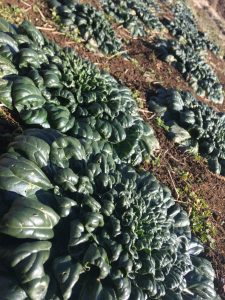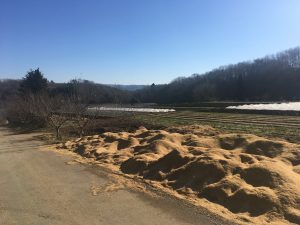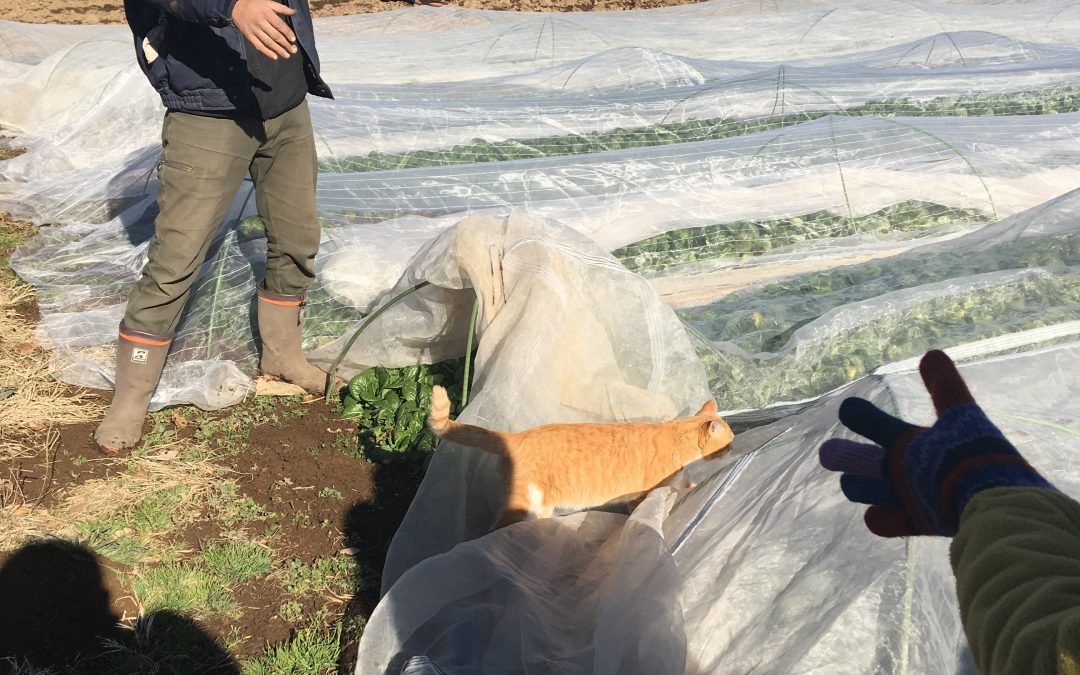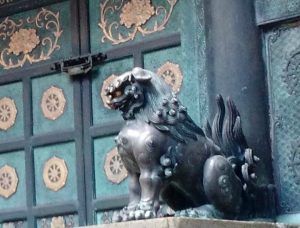
Mr. Tomatsu taught us that the shape of the vegetable changes based on the temperature they grow in.
During the morning of January 10, we went to 帰農志塾 (kinoshijuku), another organic farm that trains Japanese people who want to become a future farmer.
The conversation with the founder’s son and daughter gave me a clear understanding of organic farming. I realized that I have never visited an organic farm or understood all farmer’s perspective of organic farming. It’s very interesting to see that every farmer have their own foundation to produce goods. Today the founder’s son said, “If you want to understand how to produce goods, you have to start from the “basics” and learn as you go. Mistakes have to happen in order to succeed, and that is the foundation.” I would like to visit more organic farms and hear the different foundations of each farmer.
When I asked if it was worthwhile for people in a city, like myself, to buy JAS labeled organic vegetables for more money than to buy inorganic ones when the JAS label only tells that those vegetables passed certain criterions set by JAS. As I have spent two and half days at ARI, I’ve learned the essence of organic farming from three different farmers, Mr. Osamu from ARI, Mr. Asami, a guest speaker from Fukushima prefecture, and Mr. Tomatsu at Kinoshijuku. All of them told us that the principle of organic farming was to follow the “law of nature,” to use as many local products as possible for fertilizer and feeds, and not to destroy the ecological cycle of the land. Because the conditions of the land vary, organic farming doesn’t have a set of standardized manuals. Each farmer do experiments on their land for a very long time to see their own growth and record the process of their food growth. By doing these experiments it helps them know if their techniques used for farming is successful or unsuccessful. These experiments sometimes fail, and when they do, farmers make new adjustments in the next term.
Overall, I’m glad to be a part of this experience and hearing from all of the guest speakers. A take away from this experience is that every farmer is different. They have their own motivations, different philosophies, and different methods to produce their own goods. At ARI, they make their own organic pesticides, but at Kinoshijuku, they don’t use any organic pesticides. Although JAS labels tell you that the food meets the standards of an “organic” vegetable, it doesn’t tell the whole story behind it. In order to trust and know the truth behind organic farming, it takes the effort to visit the farms and farmers itself.

No organic/ chemical pesticides. The philosophies vary within organic farmers.

